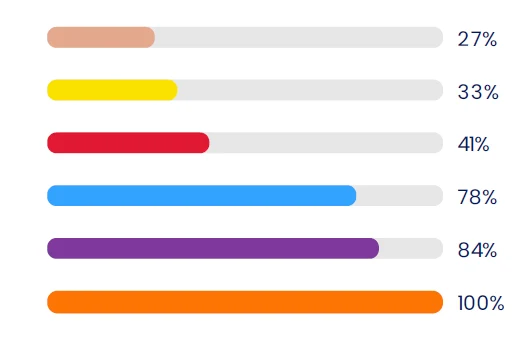The Process Communication Model: A practical tool for a deeper understanding of yourself and those around you
Imagine being able to understand not just what someone is saying – but why they’re saying it.
Imagine knowing how to phrase things in a way that instantly resonates
Imagine staying calm and clear-headed even in the most stressful situations – because you can recognize emotional patterns in yourself and others before they escalate.
Or just imagine communicating in a way that motivates, builds trust, and moves things forward – without second-guessing your approach.
Most people assume these skills take years of formal study in psychology or behavioral science.
In reality, they can be learned and applied through a practical framework: the Process Communication Model® (PCM).
PCM: A Tool for understanding deep personality structures
Developed in 1970 by psychologist Dr. Taibi Kahler, the Process Communication Model has helped millions of people worldwide understand the complex dynamics of human behavior – starting with themselves.
At its core, PCM teaches that we each have a unique blend of six personality types. One of them is dominant, but all six influence how we think, communicate, and respond – especially under stress.
These personality types determine:
- What motivates us
- How we make decisions
- What causes tension or misunderstandings in conversations
- How we shift in different environments
The 6 PCM Personality Types
Every person has all six types but in different orders and intensities. Here’s a brief overview:
Thinker – Responsible, logical, organized. The Thinker personality type relies on facts and loves structure, plans, and clearly defined steps. They’re excellent at organization, analysis, and making data-driven decisions.
Persister – Dedicated, thoughtful, conscientious. The Persister personality type is guided by their values and beliefs. They appreciate loyalty and consistency – both in themselves and in others..
Rebel – Spontaneous, creative, witty. The Rebel personality type brings positive energy and lightness to the team. They respond best when there’s an element of play, fun, and emotional connection.
Promoter – Adaptable, direct, charming. The Promoter personality type loves action and results. They navigate unfamiliar situations with ease, are persuasive, and know how to inspire others.
Harmonizer – Compassionate and sensitive. The Harmonizer personality type thrives in environments where emotional closeness and mutual understanding are present. Relationships matter deeply to them, and they’re often the ‘glue’ that holds a team together.
Imaginer – Reflective, calm, imaginative. The Imaginer personality type needs space to think and process. They appreciate clear instructions and function best when they have time to prepare and work independently.
Understanding how these types interact (within yourself and with others) is what makes PCM so powerful and effective. It’s not just a tool for communication, leadership, or conflict resolution, but a practical way to better understand yourself and grow.
What changes when you learn PCM?
We’ve all worked with someone who communicates in a way that just doesn’t land.
Or seen teams fall into conflict not because of a lack of skill – but a lack of understanding.
PCM helps leaders, HR professionals, and team members:
- Recognize communication styles and motivational needs
- Navigate stress reactions more constructively
- Tailor leadership and feedback approaches to different personalities
- Prevent misunderstandings before they escalate
- Lead the diverse team with greater clarity, empathy, and adaptability
Whether you’re managing people, working cross-functionally, or simply looking to improve how you connect, PCM offers a tangible, proven way to do so.
Learn to decode every interaction with the PCM Discover Training
To support professionals in applying this model in real situations, we’ve designed a two-day intensive program: PCM Discover Training.
This training is focused on both theory and application – giving participants practical tools they can use immediately in their work and life.
What you’ll gain:
- A deep understanding of the six PCM personality types
- Tools for recognizing communication preferences and stress behaviors
- Techniques for assertive, effective communication with each type
- Strategies for preventing and resolving conflict
- Insight into what drives motivation and disengagement
- Personalized recommendations and a clear development plan
Who is it for:
PCM training is ideal for anyone who works closely with people and wants to improve how they communicate and lead, including: HR professionals, team leaders, coaches, project and program managers, public speakers, and many others
Training structure:
Duration: 2 full days (8 hours/day)
Format: A blend of theory, self-assessment, and practical exercises
Outcome: A ready-to-use communication framework for both professional and personal growth
Every communication has the potential to break or build trust. With the Process Communication Model, you are not just learning to speak differently. You’re learning how to listen, understand, and respond in a way that transforms interactions from the inside out.
If you’re ready to upgrade your communication, leadership, and self-awareness – join us at Heads Talent Solutions for PCM Discover.


 4 min read
4 min read

